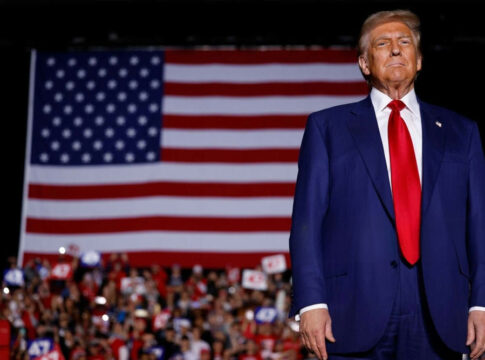President Trump has thrown a curveball into the chaotic world of college sports, signing an executive order that aims to restore sanity amid the NIL madness.
Trump’s Bold Move in College Sports
In a move that has sent shockwaves through the college sports landscape, President Donald Trump signed an executive order in July 2025. This order seeks to clarify the employment status of college athletes amid the ongoing chaos surrounding Name, Image, and Likeness (NIL) deals. The order bans third-party pay-for-play payments, a practice that has muddied the waters of college sports, while allowing athletes to benefit from endorsement deals. This decision aims to preserve scholarships for non-revenue sports, ensuring diversity and opportunity within college athletics.
The backdrop to this executive order includes a series of events that have unraveled the traditional amateurism model that college sports operated under. The Supreme Court’s 2021 ruling against the NCAA’s limits on education-related benefits for athletes marked a significant shift. This was followed by the NCAA allowing athletes to engage in NIL deals, which opened the floodgates for financial transactions previously unheard of in college sports. The result? A chaotic environment with various state laws and litigations challenging the NCAA’s authority, threatening to turn college athletics into a quasi-professional arena.
NCAA’s Struggle and the Role of the Executive Order
The NCAA, the governing body for college sports, finds itself in a precarious position. Advocating for federal legislation to establish national standards, the NCAA is grappling with maintaining its relevance and authority amidst these sweeping changes. President Trump’s executive order provides a semblance of order in this chaos, reinforcing the non-professional status of college sports while addressing the financial realities of NIL deals.
Charlie Baker, NCAA President, has emphasized the urgent need for clear federal guidelines. The NCAA’s primary concern is to balance the influx of financial incentives and maintain the integrity and spirit of college sports. The executive order’s enforcement mechanisms involve leveraging federal funding decisions and regulatory tools to ensure compliance, signaling a robust federal interest in the future of college sports.
Implications for Athletes and Educational Institutions
For college athletes, this executive order signifies a potential shift in how they are compensated and recognized. While the order restricts third-party pay-for-play payments, it does not eliminate the ability for athletes to benefit financially through endorsements. This distinction could impact recruitment and competitive balance among colleges, as financial incentives are curtailed.
Universities and conferences are also on the frontline of these changes. They must navigate the new regulations while balancing the financial implications and maintaining educational benefits for athletes. The preservation of scholarships for non-revenue sports is a crucial aspect of the executive order, underscoring the commitment to diverse athletic programs and opportunities for all student-athletes.
Looking Ahead: The Future of College Sports
The long-term implications of President Trump’s executive order may prompt a more structured system of athlete compensation, potentially revisiting the amateur status of college sports altogether. As discussions around athlete employment status and NIL rights continue, the possibility of federal legislation looms large, promising to redefine the college sports landscape.
Experts from various fields, including legal and economic analysts, are closely scrutinizing these developments. The potential for recognizing athletes as employees under labor laws raises questions about unionization and collective bargaining, aspects that could further complicate the college sports ecosystem.


